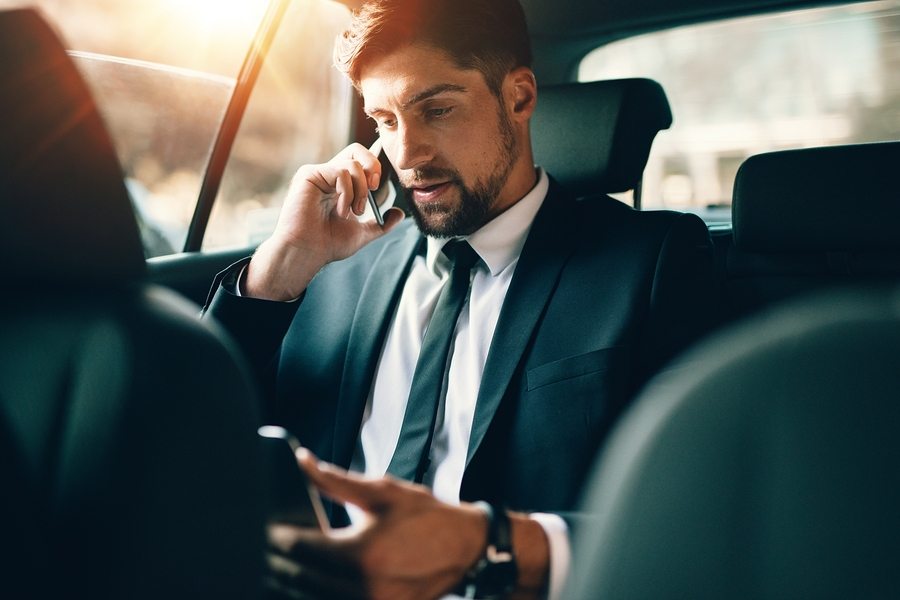Corporate travel is constantly changing, and 2018 will be no exception. With the technology industry booming, the economy becoming increasingly global, and Millennials entering their traveling years, the business travel industry will have to adapt. Here are the business travel trends to watch this year.
Live chats on travel sites
While the days of driving down to the local travel agency to book a trip might be long gone, many people still want the support of a real human when making travel arrangements. The solution in today’s digital marketplace? Live chat.
Shifting back to human-centric communications might prove to be difficult for some booking companies, but the payoff will be worth it. According to a survey conducted by Kayako, 79% of businesses that offer live chat have seen a positive impact on sales, revenue, and customer loyalty. With that kind of impact, travel companies won’t be far behind.
The rise of bleisure
Bleisure is the marriage of business and leisure travel, and it’s taking the corporate world by storm. In 2016, recreational trips that had a work component jumped to 17% from just 11% in 2012. We can only expect it to rise from here because, yes, a big slice of the bleisure pie is taken up by Millennials.
However, bleisure travelers come in all ages. According to Amy Blanco of California’s Omega World Travel, travelers extending their business trips for pleasure range from folks in their mid-twenties to early fifties. She says it all hinges on one thing: corporate travel policy. If bleisure is allowed, bleisure will happen.
Airbnb as a more common choice for business travelers
Airbnb isn’t just for couch-surfing, nomadic Millennials – at least not anymore. The popular platform hailed for its affordable accommodation rates in the heart of cities around the world is now a viable choice for business travelers, too.
While 90% of Airbnb’s customers are leisure travelers, 250,000 corporations have caught on…. That’s up from just 250 companies using the platform in 2015. The upward swing of Airbnb for business can be attributed to a couple of things. First, Airbnb recently launched a separate booking site just for businesses, aggregating “work-ready” homes. Second, with bleisure travel on the rise, business travelers are looking to make their trips rooted less in work and more in an overall cultural experience. Airbnb is the perfect choice for workers valuing work-life balance on business trips.
Mobile booking will continue to rise
Just when you thought the world couldn’t get any more connected, travelers are booking trips on their phones even more often. According to Google, 79% of mobile travelers completed a booking right on their smartphone in 2017, up from 70% in 2016.
With the ongoing competition between direct booking and Online Travel Agencies (think Expedia and Priceline), it will be interesting to see how hotels and airlines adapt to the ever-increasing number of mobile bookers.
Mobile payments will become more common
The popularity of mobile payment options like Apple Pay have soared over the last few years, so it should come as no surprise that business travelers will be looking for the same conveniences when they’re traveling for work. Research by the DCC Forum shows 51% of business travelers believe that all payments will be made via mobile in the next decade.
U.S. Bank was the first to offer mobile payments for their commercial cardholders, and more financial institutions will likely follow suit in 2018 and beyond.
Focus on safety
Safety is paramount for business travelers, especially in a world of geopolitical unrest. And while employers should always focus on their employees’ protection, you can expect to see a heightened sense of security this year.
It’s not just nasty weather and car accidents that are concerning to employers anymore: it’s things like crime, terrorist attacks, natural disasters, and cybersecurity. This year, companies will boost duty of care compliance, increase communication with travelers, use of GPS tracking devices, and focus on employee training.
Hotels hiking prices
2018 is looking to be a great year overall for business travel, with one small caveat: increasing hotel prices. The 2018 Global Travel Forecast shows that hotel prices are expected to rise by 3.7% this year, with Europe seeing the steepest increases.
It’s not just the price increase that’s going to affect business travelers, either. Suppliers are beginning to shift away from fixed, corporate rates to toward dynamic pricing models.
Cybersecurity
Hacking is no longer just something that you see in sci-fi thrillers. It’s a genuine concern for us all, and especially for business travelers. Many times, people traveling for work have sensitive data in tow, whether it be on their laptops, a flash drive, or in the cloud. And confidential information is at a much higher risk for theft during travel.
There’s no question that employers will begin to counter the cybersecurity risks of traveling. You should expect to see more employee training regarding where (and where not) to connect to the WiFi, disabling Bluetooth in unfamiliar areas, and preventing physical theft of their devices.
Ridesharing will reign supreme
Ridesharing services like Uber and Lyft are becoming the transportation of choice among business travelers, and the trend isn’t expected to slow down anytime soon. Business travelers will continue relying on ridesharing due to its dependability, timeliness, and cost, which is usually much lower than what you’d shell out for a taxi or a rental car.
But with the rise of ridesharing comes a significant change for ground transportation on the whole. The age-old taxi industry is near collapse in some large markets like Chicago, and the numbers for rental car companies like Hertz and Avis are hurting, too.
AI making an entrance
Artificial intelligence like Amazon’s Alexa and Google’s, well, ‘Google,’ are showing up in homes everywhere. It’s only a matter of time before AI becomes standard in the fast-paced business world as well, and 2018 will be a big year to push it forward. Business travelers are already warming up to the idea. 55% of U.S. business travelers believe that new and emerging technology will help enhance their travel experiences.
AI, while still in its infancy, has the potential to become a huge time and cost-saver for companies across all industries. The technology imitating human behavior will help travelers make quick purchase decisions, check itineraries on the go, and even review their corporate travel policies.
Air travel prices will remain stable
Good news, travelers! Airfare is projected to remain fairly stable in 2018 despite rising fuel prices, according to The International Air Transport Association. The same report says that, adjusted for inflation, airfare has dropped by half over the past 20 years. With affordability of air travel, expect to see a lot fewer empty seats on this year’s business trips. And don’t dilly-dally on booking if you need a specific route!
Perks? Not so much
Airfare might be more affordable than ever before, but with that comes fewer perks for being a frequent flyer. Of course you can still rack up SkyMiles, but many of the major airlines are making it much harder to reach elite status.
As an example, in summer 2016, American Airlines switched from miles-based rewards (how long you fly) to fare-based rewards (how much you paid for the flight). Obviously, this puts budget-savvy business travelers at a disadvantage for finding lower fares… even though prices are set by the airlines themselves. Hindering travelers’ ability to accumulate points quickly is making it even harder to reach elite status with favorite rewards programs, and it’s not just AA. It’s Delta, Southwest, and United, too.
Face-to-face meetings >emails and Skype meetings
In this day in age, it might seem a little backward for web-based meetings and emails to start going out of style and face-to-face meetings coming back in. However, many business travelers are making trips to see their network in person. Why? Because workers realize the real power of human interaction. According to an article in Harvard Business Review, face-to-face requests are 34 times more powerful than text-based ones.
When you’re trying to close a deal or make a valuable connection, in-person meetings are staggeringly important. With the strengthening economy allowing businesses to pay for travel, we can expect to see an uptick in business trips for the sole purpose of meetings in 2018.
More flexible travel programs on the corporate level
Overall, business travel is projected to continue growing, with the number of business trips expected to hit 283 million by 2020. With increased investment in travel, corporations will have to beef up their travel programs to retain – and attract – top talent.
Even though business travel is an old industry, it will have to adapt to the rapid change in technology and the new people entering the workforce: Millennials. Younger generations put serious value on work-life balance. As a result, expect to see more corporations offering flexible options for their business travelers: opportunities to extend their stay and enjoy some personal time during business trips, flexibility to choose an Airbnb over a hotel, etc.
Sharing on social
Social isn’t just for personal sharing and brand awareness anymore. Business travelers are using it to share their experiences on the road, especially with more Millennials hitting their strides in their careers. So keep an eye out for more photos on Instagram of an airport delay, the perfect display of sushi, and trade show booths.
Taking off on your first business trip of 2018? Don’t forget to reserve your parking spot!





